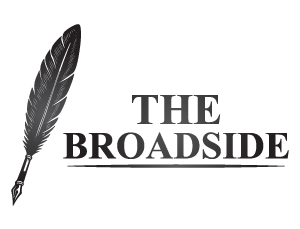Intro:
For decades, women were told they were fine—normal labs, normal scans, normal aging. But what if the problem wasn’t with the women? What if the problem was with the science?
Spoiler: It was.
Modern medicine was built on male bodies. For most of medical history, women were excluded from clinical trials. That means everything—from drug dosing to exercise guidelines—was crafted around male biology, then rubber-stamped for women without testing how we actually respond.
Now, a new generation of female scientists is finally filling in the blanks. And what they’re finding is changing everything.
1. Estrogen Is a Brain Hormone
Dr. Lisa Mosconi, a neuroscientist at Weill Cornell, has been sounding the alarm: estrogen doesn’t just influence reproductive health—it plays a massive role in brain function. Memory, mood, cognition, energy, even risk for Alzheimer’s disease.
Estrogen interacts with nine major systems in the body. Yet for decades, that was barely acknowledged outside of OB/GYN offices.
Translation: When women say they’re foggy, exhausted, or mentally off during perimenopause or menopause, they’re not imagining it. They’re experiencing real, brain-level shifts.
2. Women Respond Differently to Fasting and Exercise
Dr. Mindy Pelz and Dr. Stacy Sims have exposed the blind spot in wellness advice: most diet and fitness plans were tested on men. But women’s hormonal cycles dramatically shift how our bodies react.
- Fasting too aggressively can trigger stress responses in women, leading to hormonal imbalances or thyroid issues.
- Women benefit more from strength training in certain phases of their cycle, while aerobic exercise is better timed to others.
Your cycle isn’t an inconvenience. It’s the operating system. And we’ve been ignoring the user manual.
3. Most Doctors Were Never Taught This
Here’s the kicker: the doctors aren’t to blame. If you’ve been dismissed or told “everything looks normal,” there’s a good chance your doctor wasn’t trained on this information either.
- These insights weren’t in their textbooks.
- The clinical data wasn’t even available until recently.
When your lived experience doesn’t match your lab results, it might be because the lab ranges were designed for a body that doesn’t cycle.
Why This Matters Now
Women in midlife are experiencing record rates of anxiety, burnout, and mystery symptoms. They’re trying to hold families, careers, and communities together while navigating hormone chaos their own doctors may not fully understand.
This isn’t just about feeling heard in the exam room. It’s about rewriting the medical narrative so women are finally studied, understood, and treated based on our biology.
The Bottom Line
It’s not in your head. It’s in your hormones. And the science is finally catching up to what women have been saying all along.
If you’re a doctor, patient, coach, or policymaker—now’s the time to learn what we were never taught. Because the future of healthcare depends on it.
This article is part of the Rebel Logic series on women’s health and systemic blind spots. For downloadable guides and resources, visit TheBroadsideNews.com.
